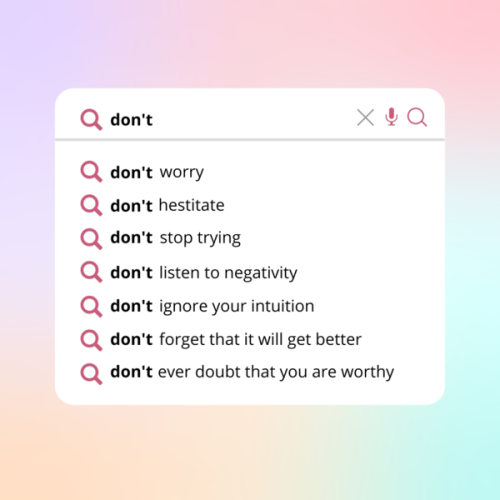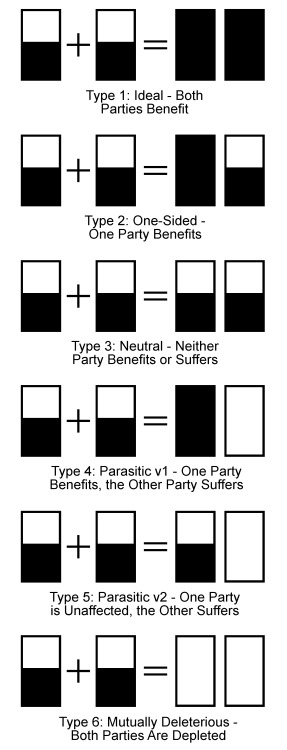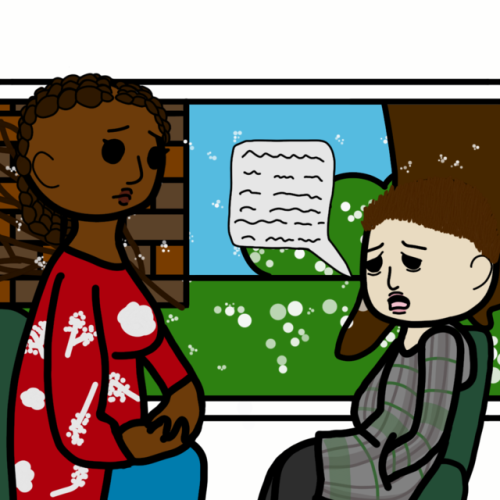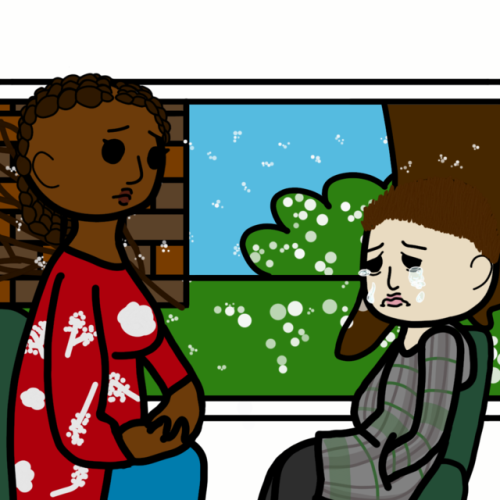#counseling
The long awaited transformation is finally here! Asking Jude has officially moved to our own platform at askingjude.org. Though our Tumblr has recently been reactivated, we highly urge you to create an account, so you may receive 24/7 support from the Asking Jude Team and its community members.
On askingjude.org, you will receive the following:
- Receiving notifications when your submission has been added and answered
- Speaking with, receiving help from, and/or helping community members at Asking Jude
- Assurance that your submission will not be deleted or lost by buggy software
- Uninterrupted conversations with our team of peer counsellors
By joining our new platform, you indirectly support our organization and the belief that mental health care should be free and accessible.
Since most of you are unable to donate to our Patreon, our new platform provides you with an opportunity to support us without spending a dime. Through the luxury of advertisements, your visits will turn into mini-donations for myself and the Asking Jude Team. By supporting our free mental health services, you will support free mental health care.
Please, access our website, askingjude.org, through a laptop or desktop computer. Our mobile version is still a work in progress.
Click here and create your account at Asking Jude and join the family today.
Are you confused about how to start?
How to create an account:
1. Go to askingjude.org. Click outside the donation popup obviously.

2. Click “Sign Up/Log In” to create a new account or log onto an existing account.

How to ask questions to the Asking Jude Team:
1. Click “Ask Jude” at the top menu.

2. Click the “Ask Jude” thread.

3. Click on the thread MOST related to your question.

4. Click “Ask a Question.”

5. Type your question and explanation and click “Submit.”

I hope this helps! Join us today!
Paige “Jude” Gilmar,founder, CEO, and hiring manager of Asking Jude
1. What did you really love doing as a child? What did you seem to have a natural talent for?
2. What are you willing to do for free because it brings you satisfaction and fulfillment?
3. What sorts of things absorb your attention, and cause you to lose all sense of time?
4. Do you prefer to work with others, or by yourself?
5. Do you prefer order and structure, or do you prefer freedom, and the chance to be spontaneous?
6. What would you do, and where would you work, if someone told you they would finance your dream? Would you build a business? Travel? Spend it on yourself? Invest it in doing something meaningful for others?
7. If you were asked to picture the ideal life, what would it look like? What would be all the different aspects and components?
The following are essential for good self-care:
1. Consciously teach yourself to relax, and practice relaxation as soon as you feel stressed.
2. Pay attention to what you eat and drink.
3. A warm shower or bath can help our muscles to relax, and can help ease the tension in our body and mind.
4. Talking with a person who accepts us as we are, is highly therapeutic, and enhances self-esteem.
5. Recognise that there are things that are outside our control – and there some situation that we simply cannot change.
6. Organise your time, and prioritise your tasks.
7. Keep a sense of humour, and laugh throughout the day.
8. Listen to the music that helps you to unwind.
1. Waiting and not knowing is a large part of life.
2. Often, what we fear doesn’t happen in the end.
3. We all have our flaws; everyone is on a journey.
4. Expect to get things wrong and to mess things up at times.
5. A good and trusted friend truly is a gift and treasure.
6. Treat yourself and others with kindness and respect.
7. Be patient in your struggles as they teach important lessons.
8. Believe you have the grit to create the life you want.
1. Knowing deep inside that you are good enough.
2. Believing you can do it, and believing you can make it.
3. Choosing to be grateful when you feel like complaining.
4. Choosing to hang in there when you feel you’ve had enough.
5. Knowing each new day is a true gift and fresh beginning.
6. Valuing others, and treating others well.
7. Investing in people instead of chasing things.
1. Get into the habit of challenging your thinking – especially when it falls into the same old repeated, negative patterns.
2. Keep a thankfulness journal – and deliberately look for the good things in your life.
3. Spend time with people who can see your strengths, and who make you feel good about yourself.
4. Keep some photos or mementos that remind you of your passions – so theses can help inspire you to love your life again.
5. Leave positive notes and quotes around your room, or inside your wallet, or on your desk, or phone.
6. See failure as a stepping stone that leads to further growth – and as something that is common, and experienced by us all.
7. Deliberately nurture and care for yourself – and see this as essential, and a top priority.
1. Don’t expect empathy, understanding or praise and recognition from a narcissistic person. Keep your private thoughts and feelings close to your heart, and don’t open up and make yourself vulnerable.
2. Expect them to be rude and to say offensive things.
3. Don’t be offended by the things they say and do as it’s not about you – they treat others the same way.
4. Make a lot of their achievements and praise them publicly as they’re always looking to be noticed and affirmed.
5. Don’t try to get a narcissist to see things differently as they’re not going to change, or be influenced by you.
6. Understand that a narcissist is going to drain you dry – and will guilt you into think that you haven’t done enough. But it’s actually not true. They just can’t be satisfied.
7. Don’t push for a meaningful relationship with them as it will always be one-sided … look for love from someone else.
1. Don’t listen to the voice inside your head which tells you that you’re inadequate.
2. Don’t hang out with people who look for the flaws, and can’t see the best in the people in their lives.
3. Recognise that each person is different and unique. There is no-one like you; and you have great attributes.
4. Take note of your efforts, and the progress you have made. You’ve already come so far. You should celebrate that!
5. Appreciate others, and what you gain from them. Don’t see them as people who undermine you.
6. Remember that NO-ONE is perfect in this life, and that other people struggle with the same stuff as well.
7. Go after the things which matters the most: being loyal, thoughtful, caring, and kind.
1. Getting your self esteem from others.
2. Constantly attacking and putting yourself down.
3. Thinking others are better than you.
4. Expecting things not to turn out well.
5. Living in the past.
6. Fearing the future.
7. Being afraid of, and resisting, change.
1. Stop asking everyone else for permission.
2. Stop seeking to live up to other people’s expectations.
3. Listen to your head, and your feelings, and your heart.
4. Be willing to take risks and to try what interests you.
5. Don’t give up too early – and don’t assume you’ll fail.
6. Give yourself permission to always be yourself, to be genuine with others, and to carve out your own path.
Something I’ve been thinking about for a long time now–the nature of energy transfer in social transactions twixt individuals. Here I’m working from the premise that most of us are analogous to a “battery with half a charge” and that we can be either enriched (“recharged”) or depleted (“sucked dry”) through our interactions with others, at the two extremes of the spectrum. This chart attempts to define some of these potential interactions across a range of possible outcomes from a “win-win” scenario through “neutral” interactions to a “lose-lose” scenario in which both individuals are depleted and neither benefits.
This chart is necessarily a simplification, and I think it goes without saying that there are many other ways the equation can “balance”–not everybody is “half a battery,” and some people are such an overwhelming reservoir of positive energy that they effortlessly nourish and nurture others without themselves being depleted (in my experience such people are very rare). Conversely, it is almost impossible for two “empty batteries” to replenish each other, and such interactions are unfortunately all too common. I attempted here to illustrate what I see as the most likely scenario, where partially “charged” individuals interact. Any transaction where one or both parties benefit by coming away with a surplus of energy without victimizing or parasitizing each other is a positive outcome in this model.
All credit for this paradigm lies with my old psychiatrist Dr. Donald E. Wilbert, the coolest shrink I ever had. To even further simplify things, he had a beautifully concise equation governing choices in social energy exchange:
positive connection > no connection > negative connection
Seek mutually beneficial relationships, and avoid those that deplete you.
www.flintofts.com/obituary/Donald-E.-Wilbert/Issaquah-Washington/1752659
Post link
“Saying ‘yes’ to happiness means learning to say ‘no’ to things that stress you out.”— Unknown
“A soul that carries empathy is a soul which has survived enormous pain.”— Unknown










